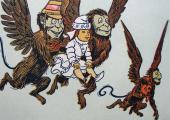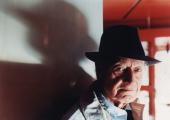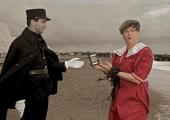The Wonderful Wizard of Oz – The True Story, BBC Four

An engrossing, detailed documentary with one significant omission
“There’s no place like home… there’s no place like home… there’s no place like home…” A wish became a mantra and then became a happy ending, when Dorothy wiggled her ruby-red shoes in the MGM movie version of L Frank Baum’s fairy story. But this documentary didn’t even get to the most watched film in the history of cinema until its closing 10 minutes: perhaps because its makers were concerned that if they’d called it “The Story of L Frank Baum” it wouldn’t have found an audience.



